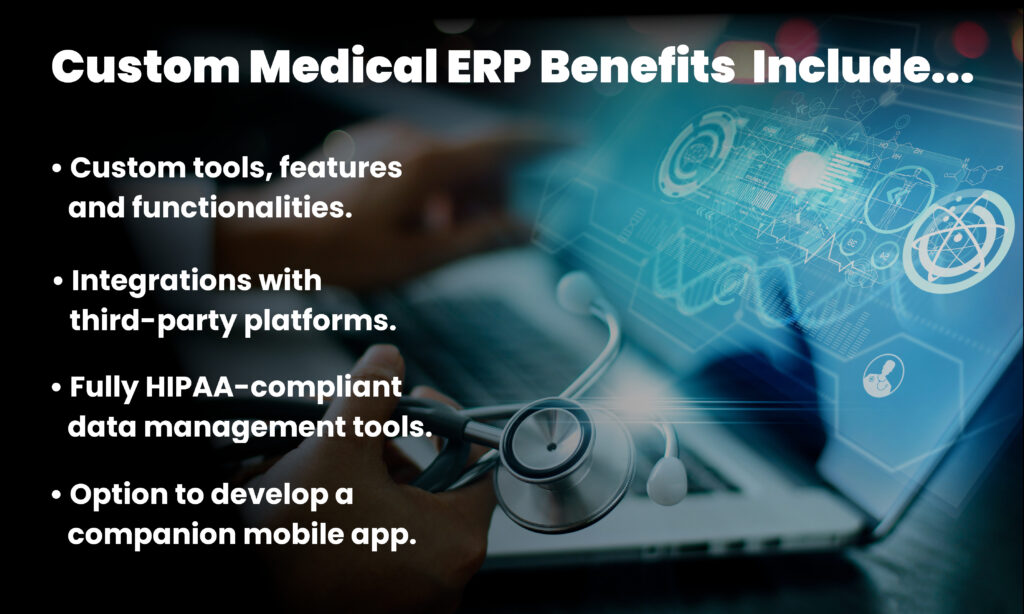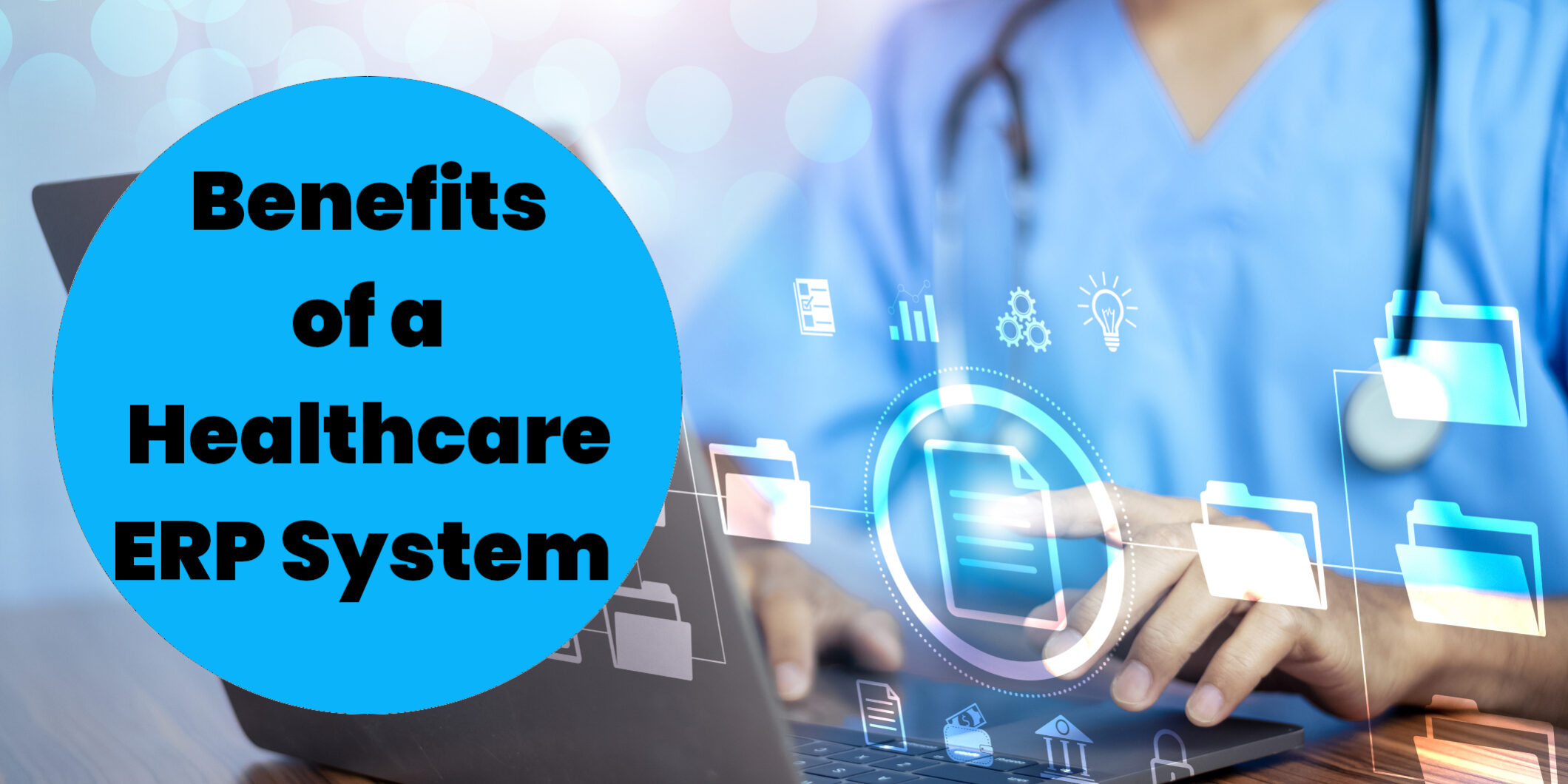A custom enterprise resource planning platform – better known as an ERP system – can bring a wide range of benefits to an organization. This is especially true in the case of a custom ERP for healthcare organizations given the unique and complex nature of each operation combined with HIPAA regulations. An investment in a custom ERP system can bring major advantages, whether it’s a large hospital, a diagnostic lab or a small private practice.
HIPAA Regulations and a Custom ERP for Healthcare Systems
A custom ERP for healthcare applications must take HIPAA regulations into account, from granular control over user permissions to robust control over patient data, along with encryption and privacy tools. Centralizing your technology with a HIPAA-compliant healthcare ERP solution, managing regulatory compliance becomes much easier.
HIPAA regulations have a major impact on a healthcare organization’s operations, processes and procedures. These regulations must be carefully considered when deploying a new ERP system. It’s also not uncommon to have state-specific regulations that must be taken into account when developing a healthcare ERP platform. In short, an off-the-shelf ERP system simply won’t work; you need a customized enterprise solution that’s designed specifically with healthcare organizations in mind.
Healthcare ERP Integration With Existing Technology
A custom ERP for healthcare organizations can be integrated with existing technology and systems that are in place. In fact, it’s even possible to include virtually any feature or functionality directly within the ERP platform, which subsequently negates the need to integrate with a third-party platform.
Integrations allow data to flow between the custom ERP system and third-party platforms. This is a common need for healthcare ERP platforms since medical systems and devices often require proprietary software to operate properly. For instance, an MRI machine will have its own software platform for operation and for viewing the images that are captured during each scan. It would be impractical to recreate these tools and functionalities within a custom healthcare ERP system, making integration the most logical option.
 Healthcare ERP Systems With a Companion Mobile App
Healthcare ERP Systems With a Companion Mobile App
A custom healthcare ERP solution should include a mobile app, allowing users to go back and forth between the full-featured desktop platform and a pared-back app version that can be used on a tablet or mobile smartphone device. The medical field can be very fast-paced and it’s impractical to expect users to be literally and figuratively tethered to a laptop or desktop computer. A mobile version of the organization’s ERP system must be available for use on smartphones and tablets.
An organization can work with the ERP developer to ensure that the mobile version has all of the features, functionalities and tools that users will need to succeed. This is a major advantage of working with a developer versus buying an off-the-shelf ERP system and trying to make your processes and workflows work with the pre-built system.
These are just a few of the many advantages of a custom ERP for healthcare organizations. The deployment of a custom medical ERP will require engagement from your organization but the investment of time and effort will be well worth it because the ROI can be significant when you work with the right development partner.
Developing a Custom Healthcare ERP System
7T is a Dallas-based CRM and ERP development company, offering a broad range of Digital Transformation solutions. By working with a top Digital Transformation development company that has experience working with the newest emerging technologies such as machine learning-powered AI, you’ll maximize your chances of success with quantifiable KPI metrics and ROI.
At 7T, we’ve developed an eBook that outlines the most common causes of Digital Transformation failure and how these issues can be avoided. What’s more, we’ve earned a reputation as one of the top Dallas Digital Transformation companies, with a Digital Transformation development process that maximizes your chances of success with a problem → solution approach. We’ve found that this works whether it’s a machine learning-powered artificial intelligence development project, business process automations, mobile app development or another form of Digital Transformation. It all begins with a well-thought-out Digital Transformation strategy and a business requirements document that outlines the specs for your project, the user needs and the problems that you’re trying to solve through the implementation and deployment of new technologies.
The Digital Transformation development team here at 7T is guided by the approach of “Digital Transformation Driven by Business Strategy.” As such, the 7T development team works with company leaders who are seeking to solve problems and drive ROI through Digital Transformation and innovative business solutions such as multimodal machine learning-powered AI implementations.
7T has offices in Dallas, Houston and Austin, but our clientele spans the globe. If you’re ready to learn more about AI development solutions and other Digital Transformation technologies, contact 7T today.










